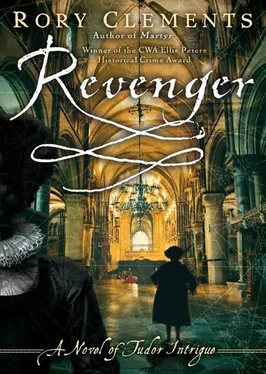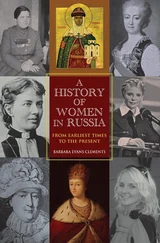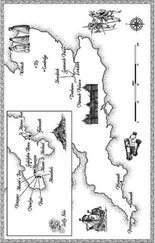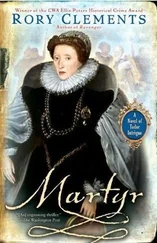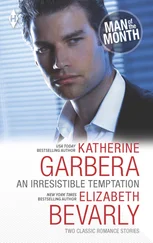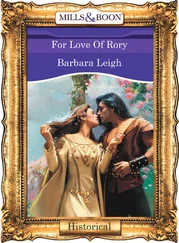Shakespeare put up his hand defensively. “My lady, there is no way I can help. My influence ended when Mr. Secretary terminated my employment. It is your brother and my lord of Southampton who have the Queen’s ear. Surely they can do something?”
Penelope shook her head. “Sadly, Mr. Shakespeare, they are just the men who cannot help him, for they would be compromised. Any intervention by them would merely play into their enemies’ hands. Such is the royal court. I am approaching you because I know you, too, have history with Mr. Topcliffe and it is generally thought you had some hold over him, that is all.”
Shakespeare tried to smile, but it looked like a scowl. He tried to laugh, but it came out as a bark. “I fear any power of persuasion I might once have had with Topcliffe died when Mr. Secretary was taken from us, my lady. I am as much in peril from him as Father Southwell.”

S HAKESPEARE WAS PREOCCUPIED AS HE BANGED AT the door of the whore Starling Day. He was thinking about the events of the previous evening at Essex House. There had been a fevered air of treachery, billowing like the dark clouds of an approaching storm. In particular, the open defiance and mockery of the masque seemed to confirm everything Sir Robert Cecil had said about Essex and his ambitions.
Mostly, though, Shakespeare thought of the Countess of Essex and the strange disturbance of the mind that afflicted her. She was being poisoned, he was certain of it. What is one little life against a matter so great? Her sickness had less to do with the loss of her child and more to do with something she had been fed.
As the door was opened, he tried to put the thoughts aside. He smiled at Starling Day, surprised by the change in her. She had gained a well-rounded figure since last they met. She had also gained a great deal of money and a well-favored house in the middle of the great bridge between London and Southwark. She welcomed him effusively.
“Come gaze with me out of the windows eastward, Mr. Shakespeare. I love the morning sun. See the birds diving for fish and the proud argosies setting sail for the Spice Islands. I could stand here the day long just watching and listening. At times I fancy I can hear the timbers creak and the shrouds sing.”
“Your life has certainly changed, Starling Day.” He was particularly struck by the change in her voice. Where once her Nottinghamshire tone had been difficult to decipher, even to a Midlander such as himself, now she could almost pass for a London lady. Almost, but not quite.
“Mr. Watts has taught me much. He has told me proper ways of speaking and is even teaching me to read a little. He promises that one day soon he will present me at court, though I should die to meet the Queen. Indeed, it is a fine thing to be the plaything of a wealthy merchant, Mr. Shakespeare. Mr. Watts looks after me very well and I am always here for him, as is meet and proper in a courtesan . That is my new word for ‘whore,’ Mr. Shakespeare. Do you like it?”
“It suits you very well, Mistress Day.”
“Mr. Watts learned it in Italy, where it implies a certain respect.” She clapped her hands and a maid came quickly to her side, a sweet-faced girl perhaps five years younger than her mistress. Starling herself was dressed in a fifty-mark dress of gold and silver with a voluminous bum-roll and a low neckline that let loose her expanding, milk-white breasts. The garment, which she said was confected by Tredger the tailor, of Cheapside, was clearly intended to mark her out as gentry, but sadly only marked her out for what she really was, a gaudy strumpet whose cards had turned up kings.
“Winnie, fetch us malmsey wine and saffron cakes.”
The maid bowed and went out of the room. It was a room rich with tapestries from Arras and cushions of colorful silks from the Indies, a room befitting the well-fed whore of a wealthy, piratical merchant like John Watts.
“How may I help you, Mr. Shakespeare?”
“I am here with a most curious request, for I know you have friends in the bawdy houses of Southwark.”
“Oh dear, I am not so familiar with bawdy houses as once I was. My trugging days are over since Mr. Watts took a liking to me, although I would happily take you to my chamber for the joy alone, Mr. Shakespeare.”
Shakespeare smiled at the offer but shook his head. “I am looking for a woman named Eleanor Dare, born White, though there is a good chance that she no longer goes by either of those names. She was seen by the Bull Ring last week, where the Winchester geese parade for customers. It was said she wore the attire of a street woman touting her wares.”
“What does she look like?”
“Pretty, from what I am told. Slender with fair hair and strange, piercing blue eyes with a gray ring.”
“And can you tell me why you want her?”
“It is a strange tale.” As the maid returned with wine and saffron cakes, Shakespeare told Starling the story of Roanoke and of the sighting of Eleanor in Southwark. “It is so curious that I do not really wish it bruited about. If this woman Eleanor is in England-and if she were to hear of my inquiries-I fear she might well disappear.”
“Then I shall ask about quietly, Mr. Shakespeare. And I shall send word to you as soon as I have heard aught of interest.”
Shakespeare took his leave of Starling Day and walked the short distance home to Dowgate to fetch his horse, sure all the while that he was watched. Another man might have felt intimidated, but you could not work in a world of secrets and be too concerned by such things. Shakespeare knew how to spot the observer who wished to remain unseen: the shadow on the wall that stopped when you stopped, the figure in the crowd that did not quite flow with the surging of the mass, the face that was cowled despite the warmth of the day. More importantly, Shakespeare knew, too, how to lose the watcher when it became necessary.
At the mews he ordered the groom, Perkin Sidesman, to ready his gray mare , then went through to the house for a brief refreshment and to fold a change of garments into a pack-saddle. He also met his deputy, George Jerico, and told him that for a short while he was to assume the duties of high master. Jerico looked shocked and a little worried, but Shakespeare merely shook him by the hand and thanked him for his forbearance. “I will see that you are properly recompensed, Mr. Jerico,” he said, then left him to contemplate his new responsibilities without a chance to make objections.
On his way through the courtyard, Shakespeare encountered Rumsey Blade. His narrow face sneered.
“Ah, Master Shakespeare, might I have a few words with you?”
“Later,” Shakespeare said sharply, not breaking stride as he made for the mews.
Blade scurried to keep up with him. “It is only proper to inform you that I have this morning sent a report to Bishop Aylmer. You can expect to be disciplined in the most severe terms.”
“Good-day, Master Blade.”
“The bishop does not take these matters lightly, so I have recommended him to revoke the school’s license. I am sure of a fair hearing in this, for the bishop is my kin.”
Shakespeare stopped. He looked Blade in the eye. “And I have information for you, sir. You are dismissed from your post as a master of this school. You will leave the premises this day and will not return.”
Blade’s pinched face creased even more, shocked to be spoken to thus. “You cannot do this, Shakespeare.”
Shakespeare gestured to his servant, who was carrying a water butt toward the house. Jack Butler was a giant of a man, well over six feet tall. He set down the butt and came to his master. “Mr. Butler, will you please ensure that Mr. Blade is off these premises before sunset.”
Читать дальше
